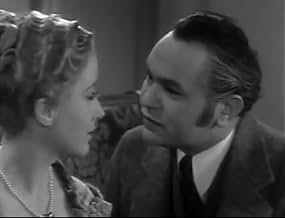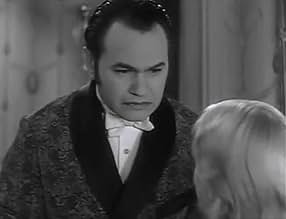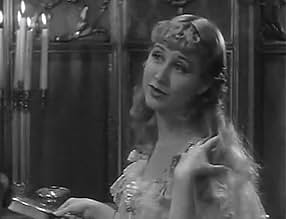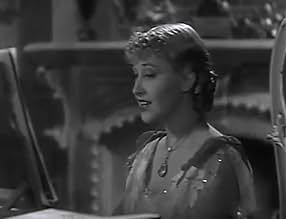Ajouter une intrigue dans votre langueArt student John Hayden interrupts his studies in Greece to head his father's meat packing business on his father's death. He marries social climber Martha who taunts him for his ideals rega... Tout lireArt student John Hayden interrupts his studies in Greece to head his father's meat packing business on his father's death. He marries social climber Martha who taunts him for his ideals regarding worker happiness and meat purity. He begins supporting the musical career of singer ... Tout lireArt student John Hayden interrupts his studies in Greece to head his father's meat packing business on his father's death. He marries social climber Martha who taunts him for his ideals regarding worker happiness and meat purity. He begins supporting the musical career of singer Laura. During the Spanish American war he sells the Army tainted meat. Martha puts detecti... Tout lire
- Prix
- 2 victoires au total
- Banker
- (uncredited)
- Doctor
- (uncredited)
- Banker
- (uncredited)
- Hayden's First Butler
- (uncredited)
- Voting Returns Announcer
- (uncredited)
Avis en vedette
Nonetheless, ILAW is entertaining and absorbing with its often rambling tale of a Chicago robber baron loosely modeled after real life meat-packer Samuel Insull. And while the romantic scenes between Robinson and his leading ladies Kay Francis and Genevieve Tobin may lack appropriate chemistry or credibility, it cannot be denied that in ILAW Robinson delivered a robust and commanding performance. He was a powerful actor in this early pre-code effort, and certainly gave us every indication that he would evolve into the superb character actor that became his future destiny.
As for veteran director Alfred E. Green, he would go on to direct The Jolson Story, The Fabulous Dorseys and The Eddie Cantor Story among many other films.
ILAW is little known today. That is too bad, because it provides an excellent time capsule that captured three accomplished actors as they were moving into their peak career period, as well as just how the Warner Brothers Studio System actually worked in practice. Next time TCM shows ILAW, check it out!
It's still worth it to see Robinson, Francis, and the other actors as they appeared in 1933.
The plot was not perfect and needed some paring down, and the ending left something to be desired, but this is a film you should see.
There are some unfortunate sequences in which the dialog becomes florid, stilted, and too much in the manner of a lesser Victorian romance. And the use of "Home On The Range" as a Rosebud motif comes across as ludicrous, to put it charitably. Such flaws, however, do not seriously lessen the impact and entertainment value of this undeservedly obscure picture.
John Hayden (Edward G. Robinson) is the heir to a meatpacking fortune and has just learned that his father has died. Despite claiming to being the champion of improved working conditions, wages and cleanliness, he spends the next few years leaving the company to essentially run itself while he devotes his energy towards raising a family. However, he slowly realizes that his company is going bankrupt AND his wife couldn't care less, as her father is the head of a group of meatpackers who are opposed to Hayden's STATED ideals. I say stated because during his absence from the company, he pretty much ignored his fine talk of running a progressive company.
Now with a company in trouble and a marriage a bit rocky, Hayden decides to run the company like the rest....or worse. Cleanliness and safe hygience mean nothing to him. In addition, he's got a new sweetie (Kay Francis) and his energies are focused on her and making millions...his wife, well, she's expendable. When war breaks out, he's more than happy to sell the government tainted meat for the soldiers! Nice guy, huh? If you haven't guessed, he's essentially a jerk!
So what did I like and not like about this film? What I didn't like was that Hayden changed so dramatically...too dramatically to make any sense. One minute he's a champion of the little people and a good husband, the next he's the opposite. His change was just too abrupt to be believable. On the positive side, the acting is very nice and the film has all the polish you'd expect from a Warner Brothers epic...though I could have done without all the times the film used "Home on the Range". Overall, decent but hardly among Robinson's best...and much of it is because no one in this film is likable and so you lose interest along the way. Plus, it never seems to know when to quit...so it's overlong to boot.
But when they reach an hour and a half, they sometimes bog down and become as dull as the inane films the Production Code later foisted on us.
This film is a good example. The history of Edward G. Robinson's transformation from a young idealist inheriting his father's meat-packing business to a ruthless capitalist defies credulity both for his naivete and the ease of his rise to the top when he discards his scruples. The characters are mostly one-dimensional stereotypes. The character of his opera star mistress, a somewhat miscast Kay Francis, who eggs him on with Nietzschean pep talks about dominating the world, sounds like Ayn Rand on steroids.
All this is fine for the first hour or so, when the rapid succession of events keeps you guessing what will happen next and too busy to think about the logic of it all. The last half hour or so, about his well-deserved downfall, goes by much more slowly and grinds to an undramatic ending.
Still worth a look for pre-code fans for Robinson, Francis and other fine actors, but don't put it at the top of your list.
Le saviez-vous
- AnecdotesAlthough a novel by David Karsner is credited onscreen as the source, none has been located; it may not have been published. However, David Karsner's biography "Silver Dollar: The Story of the Tabors" was made into a film the previous year, also starring Edward G. Robinson named Silver Dollar (1932).
- GaffesThe newspaper item "10 Years Ago Today" near the end of the film stated that Hayden fled to Greece on the same day that the Chicago White Sox defeated Detroit, 10-6. But an item next to it noted that it was the 50th anniversary of the death of Scottish physicist James Clerk-Maxwell, which occurred in November 1879. Because the baseball season in 1919 ended in September, the anniversary of the White Sox-Tigers game could not have been on the same date as the anniversary of Maxwell's death.
- Citations
Charles Lane: John, you're mad!
John Mansfield Hayden: Yes. Maybe I am mad. But it's madmen who run the world today.
- Bandes originalesHome on the Range
(1904) (uncredited)
Music by Daniel E. Kelley (1904)
Lyrics by Brewster M. Higley (1873)
Played during the opening credits and at the end
Played on piano and sung by Kay Francis
Whistled and sung a cappella by Edward G. Robinson twice
Reprised by Kay Francis twice
Played by a band at the election celebration
Played as background music often as a love theme for John and Laura
Meilleurs choix
Détails
- Durée1 heure 30 minutes
- Couleur
- Mixage
- Rapport de forme
- 1.37 : 1
Contribuer à cette page























